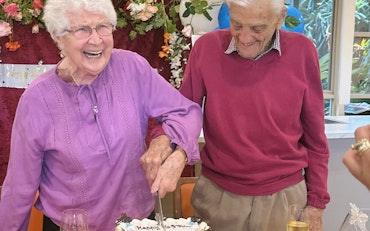A solution to the culture gap in Aged Care homes
Let Aged Care Guide help bridge the cultural gap in aged care
![<p>We live in an open world, so how do we provide adequate support? [Source: Shutterstock]</p>](https://agedcareguide-assets.imgix.net/news/articles/wp/culturegap__0709.jpg?fm=pjpg&format=auto&w=550&q=65)
We live in an open world, so how do we provide adequate support? [Source: Shutterstock]
As society continues to grow in cultural diversity, it’s important to address how diversity has influenced aged care services. This article is intended to cover the profound importance of cultural diversity in aged care and the necessity of embracing and accommodating diverse cultural backgrounds.
Understanding cultural diversity
Cultural diversity encompasses various factors such as ethnicity, language, religion, traditions and customs. Each culture brings its unique values, beliefs, and approaches to ageing and healthcare. Recognising and appreciating these differences is essential in providing person-centred care that respects and preserves the cultural identity of older adults.
The significance of culturally responsive care
Aged care services that embrace cultural diversity create an environment where individuals feel understood, respected and valued. Culturally responsive care acknowledges how cultural backgrounds influence a person’s health beliefs, dietary preferences, language proficiency and social interactions. By tailoring care plans to align with these cultural factors, providers can enhance communication, build trust and promote overall well-being among older people.
Respecting and accommodating cultural traditions and customs has been crucial in creating a supportive and inclusive elderly care environment. Historically, to respect and accommodate others in this way has meant providing access to spiritual and religious practices, offering culturally appropriate meals, organising cultural celebrations and creating spaces that reflect the diverse backgrounds of residents. By fostering an environment that honours cultural identities, aged care services can be seen to promote a sense of belonging and improve the overall quality of life for seniors.
A notable example of this inclusive approach is seen in aged care homes celebrating Greek Easter traditions, showcasing innovative ways to uplift the spirits of Greek residents.

Residents in Pronia, Victoria dyeing red eggs. [Source: The Greek Herald / Giorgos Psomiades]
These celebrations have brought out the creativity of staff members in providing joy and happiness to Greek residents during Easter.
Overcoming language barriers
Effective communication is a cornerstone of quality care, yet language barriers can pose significant challenges in providing adequate aged care services. Implementing strategies like professional interpreters, multilingual staff, and translated materials can bridge these language gaps, ensuring that elderly individuals are actively involved in their care decisions, understand their rights, and receive appropriate medical information.
Use AgedCareGuide’s website for cultural considerations
Navigating the complex landscape of elderly care can be challenging, especially when cultural considerations are paramount. AgedCareGuide provides a user-friendly platform that allows individuals and their families to filter and search for care providers specialising in catering to diverse cultural backgrounds. This innovative approach helps bridge the cultural gap in aged care homes by connecting elderly individuals with providers well-equipped to meet their unique cultural needs.
By using the AgedCareGuide website, users can:
Specify cultural preferences: users can input their cultural preferences, such as language, religion, distance and more into the search criteria. This ensures they are matched with care providers sensitive and attuned to their cultural background.
Connect with culturally competent providers: the platform facilitates direct communication with care providers, allowing users to inquire about the specific cultural amenities and services offered. This ensures that elderly individuals and their families can make informed decisions that align with their cultural values.
Embracing cultural diversity in aged care services is essential for providing inclusive, respectful, and person-centred care to the elderly population. By recognising the impact of cultural background on individual needs, we can implement strategies to ensure that every senior receives the care they deserve, regardless of their cultural background. The promotion of cultural diversity in elderly care is not only a moral imperative but also a pathway to enhancing the overall well-being and satisfaction of elderly individuals in a multicultural society.










